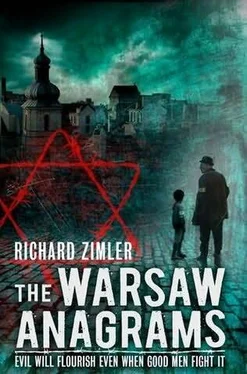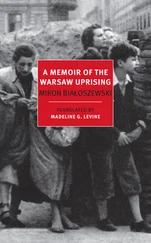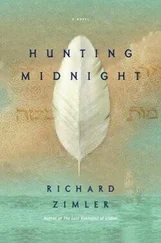And then the pain was gone. I found myself standing at the front of the crowd, next to the bent-backed man who had held me with his eyes. I watched my body swinging. And yet, looking down, I saw my own legs. I stepped my fingers across my cheeks and nose and lips, like a blind man reading a face.
I wasn’t who I’d been. And I was in two places at once. And no one could see me.
But I wasn’t scared. I felt as though all of the forward motion of the earth had ceased; that I’d stopped hurtling through my life.
But, of course, it was life that had stopped hurtling through me .
When I understood what had happened, I took a first step towards the front gate of the camp. And fell on my face. My nose and mouth pushed half a foot through the ground, into what felt like cold clay.
And yet when I picked myself up, I saw that I’d left no imprint in the earth.
Imagine a landscape continually sliding away from you – men and barracks slipping away into the distance, as though tugged by the horizon.
My first steps left me dizzy, lurching, groping along walls that weren’t there. I fell several more times, and on each occasion my hands penetrated several inches into the ground.
After an hour, I’d learned to focus only on objects close to me. What was in the distance I just let slip away. It took my feet and eyes a full two days to adjust to death. Then, I strode out of the camp.
While crossing Lublin, I looked up at a handsome woman leaning out her third-floor window, beating a sisal mat with a broom, and for a moment it seemed as if she could see me. My heart leapt towards hope, but then I realized she was glaring at a skinny white cat pawing some garbage behind me.
When I closed my eyes, each dry thud of the woman’s broom took form as a bluish square – one that quickly faded to pale green inside my inner darkness.
That was my first experience of a confusion of sight and sound, but later that day I’d notice that my heartbeat pulsed reddish-orange at the fringes of my vision, and that my breathing – particularly at night – appeared as a white-grey mist.
I headed out of town, northwest, towards Liza’s farm. Sometimes, I believed I could feel the turning of the earth below my feet. And when I grew tired, the cold December air began to shimmer around me, as though made from pearls. It was beautiful – and it made me understand that something of the world’s exuberance had remained far beyond the reach of the Nazis all the time I was in the ghetto and the labour camp.
I trudged on for two days and nights by my count. I often felt the urge to lie down, and on occasion I did, but I learned I no longer needed sleep.
I discovered Liza’s house empty and abandoned; Izzy was long gone.
On the floor by the potter’s wheel was the intricately designed skeleton of a dead mouse – the scaffolding of a life so perfect and unlike our own. Sitting by it, I began to think of Liza and of how quickly everything can be lost.
I realized I had to make the journey back to Warsaw, to where I’d started life.
Perhaps all the dead must go home before they can leave for ever.
As I dictate these words to you, Heniek, I can see a group of twenty-seven Jews from the Łaskarzew ghetto digging a pit in a forest just outside town.
As I was walking back to Warsaw from the labour camp, I’d heard the clanging of their shovels and left the road. They’d already dug a couple of feet down into the hard earth when I reached them.
It was very early in the morning. Birds were arrowing through the trees, and once the fog burned off, we’d probably have a day of sun. Five Polish soldiers and one German SS commander stood outside the pit, their guns drawn.
After the Jews had excavated another foot of earth, the German ordered them to go down into the pit. The men, women and children helped one another. A few of them dared to whisper, though they’d been warned not to talk.
A father jumped in before his daughter and raised his arms to summon her forward.
She hesitated. ‘Where’s Rudy?’ she asked; perhaps he was her older brother, or maybe even the family dog.
‘Come here, Katarzyna,’ her father whispered.
She knelt down, reaching out to him, and he lifted her into his arms.
He kissed her on the cheek, then again on her lips. He never told her where Rudy was. Instead, he pressed her head gently into his chest so that she could no longer see the soldiers.
Katarzyna was the youngest among them. She looked seven or eight. She was calm, but twenty-six other hearts were racing, including her father’s. I knew that from the way they looked up at the soldiers.
The German’s order came as a surprise. As did the hail of bullets.
The Jews in the pit weren’t yet ready. And I wasn’t either. But whoever is?
The Polish soldiers used automatic rifles. Katarzyna’s father fell right away. The girl spilled out of his arms.
Several people screamed and kept screaming. But not for long.
Katarzyna’s father died immediately, as best I could tell.
The girl didn’t. I stood at the rim of the pit and looked down at her. One bullet had hit her in the shoulder, another in the leg.
For several more minutes she continued breathing, though her eyes were closed. She’ll bleed to death , I thought. But I was wrong.
By the time the Poles picked up their shovels all but two of the Jews were dead, though most of the twenty-seven bodies had become tangled and I can’t swear that they were the only ones left alive.
Besides Katarzyna, the only other person who showed signs of life was a young man with a shaved head and bright blue eyes, in his twenties I’d guess. He was groaning and trying to sit up.
The Polish soldiers shovelled soil on top of him and Katarzyna, and kept shovelling until I could see nothing more of either of them.
Why am I telling you a story you’d prefer not to hear, Heniek? Because one of the things it proves is an essential truth that you may not yet have understood: we can never return to the Before Time.
We must create a new calendar, one that begins in 1939, when we were walled inside.
It is now Year Two in our struggle to keep our shadows from vanishing.
I lost what I loved most, and with it, my second chance. Not unusual, of course; before this struggle is over, the best among us will have been killed, imprisoned or exiled. Those left alive will be the cowards and collaborators – the tiny, fearful men who worship darkness and call it the sun. They will live to a ripe old age. Their faces will pucker and their hair will fall out, and they won’t even remember their own birthdate, and yet they will recall the days when they fought for the Fatherland in fine-edged detail and with proud fondness, as if a rousing Wagner fanfare were always playing in the background. Because they were young and ruled the world for a few brief years.
They will tell their children and grandchildren – and anyone else who dares to ask – that they had no choice but to work for the Nazis, though they were never Party members…
Caligula will even tell little Martin and Angela – his beloved grandchildren – that he worked hard to save the Jews in his care.
And little Martin and Angela will believe him.
But you and I, Heniek, we know how it was. And our understanding means everything to me now, because it means I can stop telling my story. And I can let you put down your pen.
We all want to be listened to – to feel we matter. We want to be able to tell the story of our life without being interrupted or judged, or asked to get to the point.
Freud and Chekhov, Jung and Dickens would all agree with me. I know it. And that is why they would understand why I’ve told you about my life the way I have.
Читать дальше












